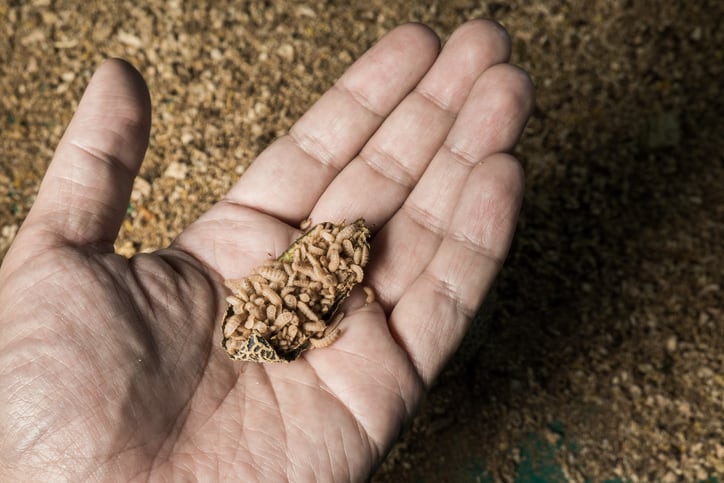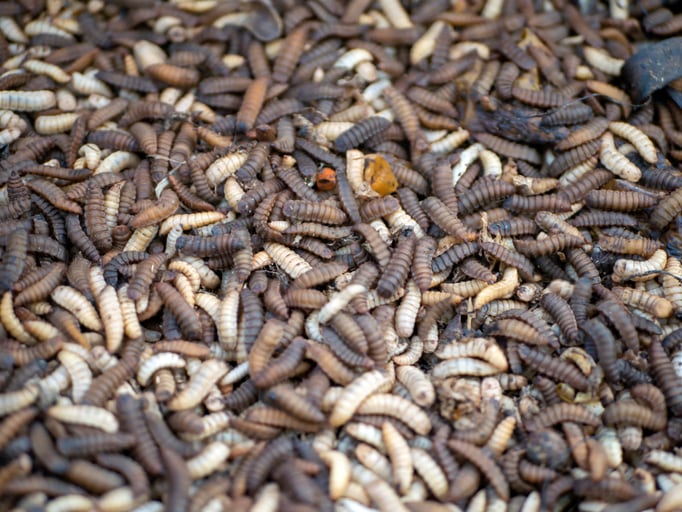It follows recent criticism of insect farming, which claims that the industry makes very little use of food waste to feed insects, instead relying primarily on more expensive, higher-quality ingredients such as commercial feed or agricultural co-products suitable for direct consumption by other animals or, in some cases, humans.
The potential benefits are driving continued interest and investment in insect farming as a sustainable food production method. But other criticisms have claimed that insect farming can be energy intensive and have high climate impacts, especially at large scales.
But according to Dean Smorenburg, CEO at the South African insect farmer Maltento, the criticism underpins the argument for more investment in research and development into insect biotechnology, which has the potential to unlock further product innovation at an unprecedented scale that does not just focus on insect farming for protein alone.
“I agree that insect farming, like any other economic industry, has its challenges,” Smorenburg says. “However, I believe that there are still solutions before us to further develop this industry and demonstrate that sustainable solutions are key to building a better world for tomorrow.”
There is no doubt, he says, that some players in the insect farming business continue to use high-quality commodities as their feed inputs instead of food waste due to economies of scale and limited access to enough waste needed to match the scale of production they are outputting.
But while these challenges are hampering the industry from realising its full potential, we should not be too quick to throw the baby out with the bathwater, he says.
“Every industry needs to start somewhere, and insect farmers enter the market at the very bottom. Farming insect protein is a great start, as long as these players continuously innovate to become more sustainable.
“Sustainable solutions do exist, we just need to dedicate the resources and time to expand on them.”
For example, insect farming operations in Africa have a steady stream of food waste from the local beer industry and bread mills, he says, and offers an opportunity to divert hundreds of thousands of kg of food waste from landfills every year.
Perhaps this is the opportunity to initiate a discourse on how geography can influence environmental impact, he asks, and that Africa could become the world leader in sustainable insect farming.
According to Smorenburg, the key lesson from BSF farming is not to focus on a single end-product, but rather on the protein ingredient they create, backed by the data that supports its efficacy. The industry should not limit insect farming to just the extraction of protein from the actual insects, he says.
A 2023 study by Cape-Town based marine surveyor company MariHealth Solutions, for instance, found that fish feed coated with larvae protein from black soldier flies boosted the immune system and reduced mortality rates in rainbow trout.
Further, their insect fat product uses 99.9% less land than coconut oil, while their insect meat product uses 99.8% less water than poultry meat.
The team at Maltento, based in Africa, has already demonstrated this approach by offering a wider range of products as insect farmers that are using traceable waste food on their livestock and extracting the pupae for protein purposes. In other areas, insect excrement is used for frass in soil and larvae for petfood palatability enhancers.
“Sustainable solutions do exist, we just need to dedicate the resources and time to expand on them,” Smorenburg concludes.
“The future of insect farming lies in embracing a diversified business model that leverages a range of by-products, reducing dependence on actual insect protein alone.
“By doing so, we can unlock a more resilient and sustainable industry that channels the full potential of insects to drive positive change in our food system.”



